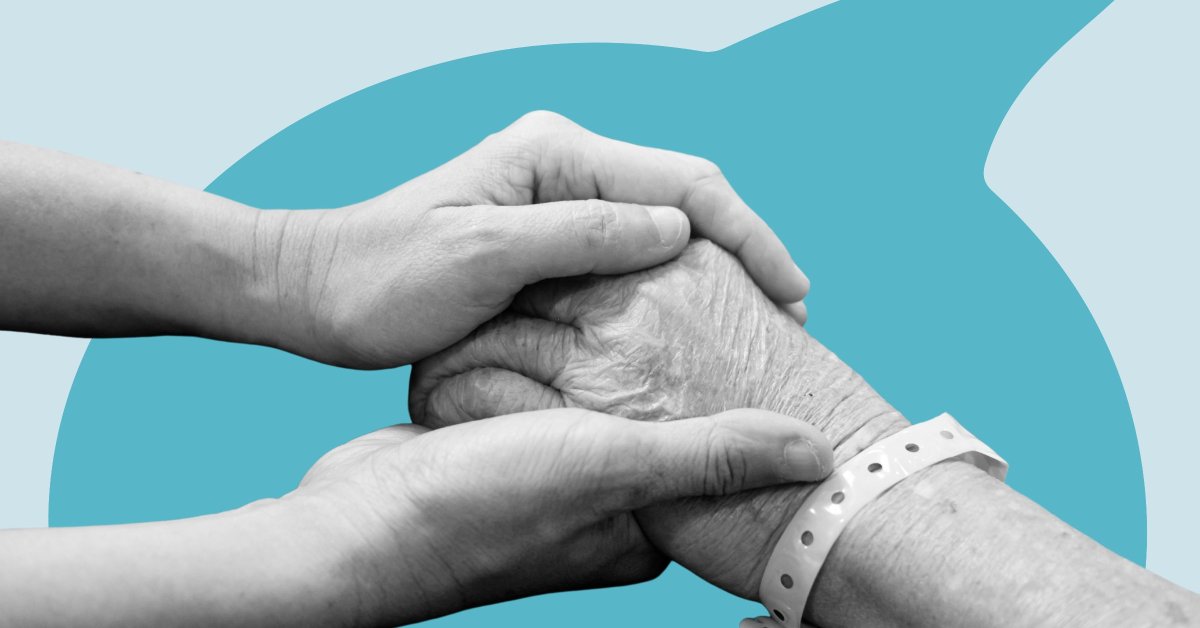Cancer Diagnosis: Do's And Don'ts Of What To Say To Patients And Families

Welcome to your ultimate source for breaking news, trending updates, and in-depth stories from around the world. Whether it's politics, technology, entertainment, sports, or lifestyle, we bring you real-time updates that keep you informed and ahead of the curve.
Our team works tirelessly to ensure you never miss a moment. From the latest developments in global events to the most talked-about topics on social media, our news platform is designed to deliver accurate and timely information, all in one place.
Stay in the know and join thousands of readers who trust us for reliable, up-to-date content. Explore our expertly curated articles and dive deeper into the stories that matter to you. Visit Best Website now and be part of the conversation. Don't miss out on the headlines that shape our world!
Table of Contents
Cancer Diagnosis: Do's and Don'ts of What to Say to Patients and Families
Receiving a cancer diagnosis is one of life's most challenging experiences. For patients and their families, the emotional rollercoaster is immense, leaving them vulnerable and needing support. Knowing what to say – and, equally importantly, what not to say – can make a significant difference in their journey. This article provides crucial guidance on navigating these sensitive conversations, offering support and understanding during a difficult time.
What NOT to Say:
Avoid these common pitfalls that can unintentionally add to a patient's and family's distress:
- "I know how you feel." Unless you've experienced the exact same thing, you don't. Empathy is key, but avoid false comparisons.
- "You'll beat this!" While well-intentioned, this statement can put undue pressure and create unrealistic expectations. Cancer treatment is complex, and focusing on positivity without acknowledging the challenges isn't helpful.
- "Everything happens for a reason." This cliché minimizes the suffering and offers no comfort. It’s better to simply acknowledge their pain.
- "At least..." Statements starting with "At least" often trivialize the situation. For example, "At least it's not [a worse type of cancer]" dismisses their current struggle.
- Unsolicited medical advice. Unless you're a qualified medical professional, avoid offering advice on treatment options or alternative therapies. This should come from their healthcare team.
- Sharing negative stories. While sharing experiences can be helpful, avoid focusing on negative outcomes. Focus on hope and resilience.
- Ignoring their feelings. Don't try to change the subject or minimize their emotions. Listen actively and validate their feelings.
What TO Say:
Focus on offering genuine support and empathy:
- "I'm so sorry to hear this." A simple expression of sympathy can be incredibly powerful.
- "How are you feeling?" Ask open-ended questions to encourage them to share their thoughts and feelings. Truly listen to their responses.
- "What can I do to help?" Offer practical assistance, such as meal preparation, childcare, errands, or transportation to appointments. Be specific in your offer: "Can I bring you dinner on Tuesday?" is much more helpful than a general "Let me know if you need anything."
- "I'm here for you." This simple statement provides reassurance and demonstrates your unwavering support. Follow through on this promise by offering concrete help.
- "This must be incredibly difficult." Acknowledge the immense challenges they are facing. Validation is crucial.
- "I'm thinking of you." A simple text or phone call can make a big difference. Regular check-ins show you care.
- Focus on their strengths. Remind them of their resilience and past accomplishments. This can help build confidence and hope.
Supporting the Family:
Remember that a cancer diagnosis impacts the entire family. Offer support to siblings, parents, and partners as well. They may be experiencing different emotions and need different kinds of support.
Finding Further Resources:
For more information and support, consider exploring resources like the American Cancer Society () or the National Cancer Institute (). These organizations offer invaluable information, support groups, and resources for both patients and their families.
Conclusion:
Navigating a cancer diagnosis requires sensitivity and understanding. By focusing on empathy, practical support, and thoughtful words, you can make a significant positive impact on the lives of those affected. Remember, your presence and support can be just as valuable as words themselves. Be there for them, listen attentively, and let them know they are not alone.

Thank you for visiting our website, your trusted source for the latest updates and in-depth coverage on Cancer Diagnosis: Do's And Don'ts Of What To Say To Patients And Families. We're committed to keeping you informed with timely and accurate information to meet your curiosity and needs.
If you have any questions, suggestions, or feedback, we'd love to hear from you. Your insights are valuable to us and help us improve to serve you better. Feel free to reach out through our contact page.
Don't forget to bookmark our website and check back regularly for the latest headlines and trending topics. See you next time, and thank you for being part of our growing community!
Featured Posts
-
 Exploring The Jack Kirby Homage In Fantastic Four First Steps
Jul 27, 2025
Exploring The Jack Kirby Homage In Fantastic Four First Steps
Jul 27, 2025 -
 Seahawks Facing Potential Acl Loss With Mc Intosh Injury
Jul 27, 2025
Seahawks Facing Potential Acl Loss With Mc Intosh Injury
Jul 27, 2025 -
 Seahawks Rb Kenny Mc Intoshs Acl Tear Impact On 2024 Season
Jul 27, 2025
Seahawks Rb Kenny Mc Intoshs Acl Tear Impact On 2024 Season
Jul 27, 2025 -
 Fantastic Four First Steps Exploring Faith And Family In The Marvel Universe
Jul 27, 2025
Fantastic Four First Steps Exploring Faith And Family In The Marvel Universe
Jul 27, 2025 -
 Analyzing The Yankees And Mets Post Trade Deadline Roster A Comprehensive Look
Jul 27, 2025
Analyzing The Yankees And Mets Post Trade Deadline Roster A Comprehensive Look
Jul 27, 2025
